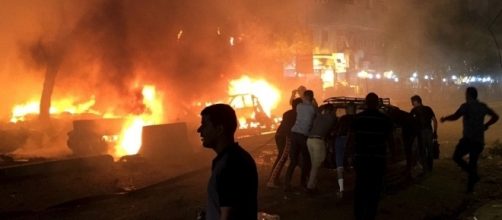On New Year’s Eve, exactly because of the symbolism of the place, an unidentified terrorist from ISIS perpetrated a massacre in Turkey. Differently from TAK, the Kurdish group responsible for an attack weeks ago behind the Besiktas stadium, whose targets were primarily policemen (even though the attack killed some passerby), ISIS systematically targets civilians, besides places of an obvious symbolism and economic impact. Previously they attacked tourists in Sultanahmet and Taksim – historic and touristic areas – as well as the main airport in town.
39 dead and 65 wounded
Until now we are aware of 39 dead and 65 wounded, with 25 of the dead from foreign countries. We must pay attention to their nationalities. According to the Turkish press, there is one Canadian, one Russian and two Indians among the dead, but almost all are from Islamic countries. Seven from Saudi Arabia, two from Tunisia, two from Morocco, two from Jordan, two from Iraq, one from Syria, one from Kuwait and one Arabic-Israeli (I use here this definition because I don’t know how the victim defined herself, and it’s relevant to say that some Arabic-Israelis, like filmmaker Suha Arraf, identify themselves as Palestinians). This shows how attractive Istanbul is for the Arabic-Islamic world as a whole, and it also shows how most victims from ISIS are Muslims.
There is no doubt, like the president Recep Tayyip Erdogan recognized, that the attacks are related to the latest events in the region, especially in Syria. Like the journalist Murat Yektin from the Hurriyet newspaper reminds, we must pay attention to two important points, both connected to internal Turkish affairs.
The frustrated coup in July of 2016
The first one is that even with there being a lot of people calling for the possibility of an ISIS attack in places like shopping centers, movie theaters, restaurants and nightclubs in big cities like Istanbul and Ankara, once again the Turkish intelligence failed at large. The probable reason is connected to the frustrated coup in July of 2016.
The government accuses the Hizmet movement for the coup and since then has been persecuting, firing, emptying the spaces used by the group, headed by imam Fethullah Güllen. And intelligence was one of their most important cores. With activists from Hizmet away, intelligence is now occupied by inexperienced professionals who are, literally, novices, because they are incredibly young.
The second issue is related to the rhetoric of Dyianet, the Turkish Directory for Religious Affairs. On the last Friday of 2016, the sermon this institution preached to almost eighty thousand mosques in the country was calling celebrations such as the New Year as non-Islamic and not connected to Turkish cultural traditions.
This way, although ISIS has officially recognized the guilt of the attack – although the terrorist himself was not yet arrested – it’s partially connected to the recent rhetoric of the AKP’s government itself.

